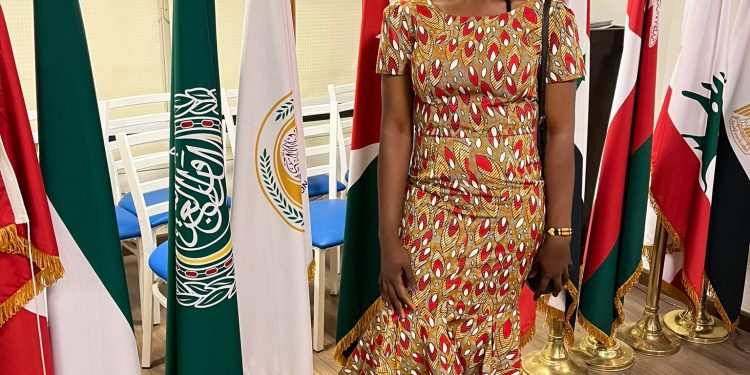
In the following in-depth interview, Bih Adelaide, one of the key organizers of the first Mental Health Rights Congress in Cameroon provides details about the organization, objectives, impact and expectations of the congress. She talked to News Upfront.
News Upfront: Thank you for taking time to talk with me today, can you please introduce yourself and share your roles in the organization of the Mental Health Rights Congress?
Bih Adelaide: Thank you for having me. I am Bih Adelaide, the President and Founder of the African Initiative for Health and Research Promotion. Our organization is dedicated to improving health outcomes, especially for conflict victims—internally displaced persons, refugees, and marginalized communities living in dire conditions. Our focus spans both physical and mental health care in Cameroon, advocating for critical reforms such as a stand-alone mental health law, mental health departments in schools and hospitals, and accessible psychosocial counselling centers. It is an honor to be part of the organizing team for this Mental Health Rights Congress, which I believe will be a pivotal moment for advocating for the mental health needs of our people.
Background and Context
News Upfront: What inspired the idea to organize a mental health rights congress in Cameroon?
Bih Adelaide: The inspiration for this congress stemmed from the glaring mental health crisis in Cameroon, especially among marginalized and conflict-affected populations. I have personally witnessed how individuals, particularly those displaced by conflict, are not only burdened with trauma but also face stigma and isolation, often without access to proper mental health care. We recognized the urgency to not just highlight this issue but to create a national platform for action, to engage in critical discussions, and to advocate for policy changes that prioritize mental health as equally important as physical health.
News Upfront: Can you describe the current mental health situation in Cameroon by your understanding and perspective, and then particularly for victims of crisis and conflicts?
Bih Adelaide: The mental health landscape in Cameroon is deeply concerning. Mental health services are grossly underdeveloped, and there is a shortage of trained professionals across the country. For those affected by the ongoing crises—such as the Anglophone conflict—mental health needs are even more pronounced. These victims often experience severe trauma, loss, and displacement, yet they have minimal access to the psychological support necessary for healing. Without appropriate care, these individuals suffer silently, and the effects on their mental well-being become more ingrained, affecting their ability to rebuild their lives.
News Upfront: How does the congress aim to address the mental health needs of these victims?
Bih Adelaide: The congress is strategically designed to advocate for policy reforms that will address the mental health needs of these victims. We will specifically highlight the importance of integrating mental health services into the government’s broader healthcare and education policies. Our goal is to advocate for the establishment of mental health departments in schools and hospitals, where individuals—particularly displaced persons—can receive timely psychological care and counselling. Additionally, we will work closely with national legislators to ensure that mental health is included in the national dialogue and that affected communities gain access to essential services
Objectives and Goals
News Upfront: What are the primary objectives of the mental health rights congress?
Bih Adelaide: At its core, the congress aims to achieve three key objectives: first, to raise nationwide awareness about the mental health crisis, particularly among members of parliament, Ministers and Senates ; second, to advocate for comprehensive mental health policies and a dedicated legal framework that recognizes mental health as a fundamental right; and third, to mobilize stakeholders—including healthcare providers, policymakers, and community leaders—to come together to address the mental health needs of our people.
News Upfront: What specific goals do you hope to achieve through this event?
Bih Adelaide: The congress is designed to achieve tangible and actionable outcomes. First, we hope to foster collaboration between government agencies, international partners, and local mental health organizations. Second, we aim to make significant strides in advocating for a national mental health law, which would provide legal protections and access to care. Third, we seek to lay the groundwork for mental health departments in schools and hospitals to ensure that mental health services are available at critical touch-points in people’s lives, especially for vulnerable populations.
News Upfront: How will the congress promote mental health rights in Cameroon?
Bih Adelaide: Through this congress, we are making mental health rights a central issue. We will use this platform to educate attendees about mental health as a human right, emphasizing that everyone deserves access to quality care. We will also push for legislative action, encouraging our lawmakers to support policies that guarantee mental health services for all, including displaced and vulnerable populations. By amplifying the voices of those affected by mental illness, we aim to shift the national conversation and encourage more people to speak openly about mental health challenges and seek help.
Organization and Partnerships
News Upfront: Can you describe the planning process for the congress?
Bih Adelaide: Organizing the congress has been an extensive, collaborative process. We’ve brought together a team of dedicated mental health professionals, including experts like Dr. Menguene Laure, human rights organizations, and local community leaders who understand the on-the-ground realities. Our planning process began by identifying the most urgent mental health challenges, and from there, we reached out to a wide range of stakeholders—ranging from government bodies to international organizations. This inclusivity ensures that the congress will be comprehensive, addressing diverse needs, especially those of conflict-affected populations.
News Upfront: Which organizations or stakeholders are involved in the congress, and what roles are they playing?
Bih Adelaide: This congress is a joint effort, with contributions from a wide spectrum of organizations. Key partners include local mental health organizations such as Afrogiveness, government agencies like the Ministry of Public Health and the National Assembly, as well as international organizations such as UNFPA, IOM, PAM, and WHO. These partners are providing invaluable expertise, resources, and advocacy support to make this event impactful. They are playing crucial roles in helping to shape the congress’s agenda, providing technical guidance, and ensuring that our outreach efforts resonate with the right audiences.
News Upfront: How have you collaborated with local communities, government agencies, or international organizations to ensure the congress’s success?
Bih Adelaide: Collaboration has been central to the success of the congress. We have worked closely with local communities, particularly those most affected by conflict, to ensure that the congress addresses their specific needs. By incorporating their voices and experiences, we’ve been able to make the congress more relevant and effective. Our collaboration with government agencies, especially the Ministry of Public Health and the National Assembly, ensures that we have the backing necessary to push for systemic changes. Additionally, international organizations like WHO, UNFPA, and IOM have provided technical support, helping us integrate global best practices into our mental health policy discussions.
Expected Outcomes and Impact
News Upfront: What do you hope participants will take away from the congress?
Bih Adelaide: I hope that every participant leaves with a clearer understanding of the urgent need for mental health reform in Cameroon. Beyond awareness, I hope they gain concrete insights into how to implement mental health care systems that are inclusive, accessible, and culturally relevant. I also want them to feel empowered to take action—whether that’s advocating for mental health policies in their communities or supporting individuals who are struggling with mental health challenges.
News Upfront: How do you envision the congress contributing to improved mental health outcomes for victims of crisis and conflicts in Cameroon?
Bih Adelaide: The congress will serve as a powerful advocacy tool. By highlighting the mental health needs of victims of crisis, we aim to catalyze action that leads to the creation of specialized mental health programs for displaced persons, trauma survivors, and children affected by conflict. Ultimately, we hope this congress will open the door to government commitment to providing long-term mental health services for all.
News Upfront: What long-term impact do you anticipate the congress will have on mental health policy and practice in Cameroon?
Bih Adelaide: In the long term, I envision the congress contributing directly to the passage of a stand-alone mental health law, which will provide a legal framework for the protection of mental health rights. It will also catalyze the creation of mental health departments in schools, hospitals, and communities across Cameroon. This shift will move mental health from being a marginalized issue to an integral part of national health policy, ensuring that mental health care is accessible to all.
Challenges and Opportunities
News Upfront: What challenges have you faced while organizing the congress, and how have you addressed them?
Bih Adelaide: One of the biggest challenges has been securing enough funding and resources to make the event as impactful as we want it to be. To address this, we’ve built strategic partnerships with both local and international organizations that are committed to our cause. Another challenge has been overcoming the stigma surrounding mental health, which is deeply ingrained in our society. We’ve addressed this by engaging community influencers and advocacy groups to lead the conversation and normalize mental health issues.
News Upfront: Are there any opportunities that have arisen during the planning process that you’d like to highlight?
Bih Adelaide: A significant opportunity has been the growing support from the government, particularly the National Assembly and the Ministry of Public Health, which are showing increasing interest in addressing mental health. There’s also been a surge of engagement from youth groups who are passionate about mental health advocacy. This is incredibly encouraging because it shows that the next generation is ready to push for lasting change.
News Upfront: How do you see the congress evolving in the future to address emerging mental health needs in Cameroon?
Bih Adelaide: As we move forward, I see this congress evolving into an annual event that not only addresses emerging mental health needs but also sets the agenda for ongoing policy reform. We aim to expand the scope of the congress to include rural communities, integrate digital tools for mental health care, and foster a sustained dialogue between policymakers and mental health professionals. This will ensure that Cameroon continues to adapt to new mental health challenges and continues to improve care for all its citizens.
News Upfront: Thanks for taking time to talk to us.
Bih Adelaide: I am grateful and I look forward to seeing you all on the day of the congress.








